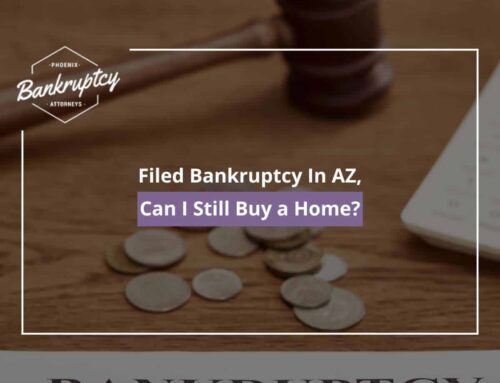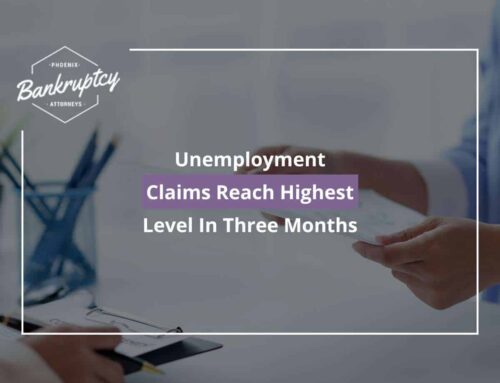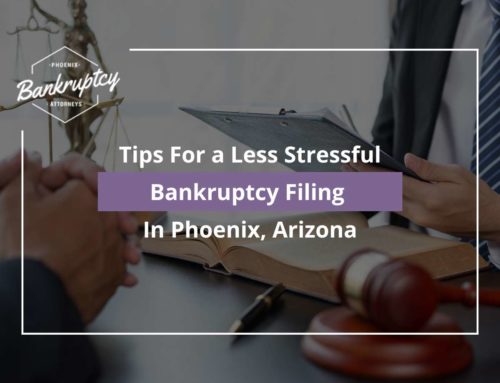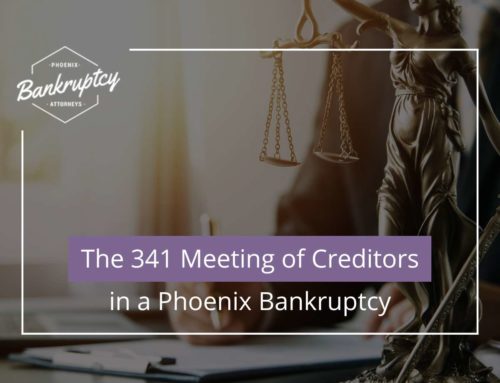Phoenix Bankruptcy Lawyers Discuss The Different Types Of Debt Relief
If you are struggling with debt, you have a few options of how to get your finances back on track. Before filing bankruptcy, many people in debt consider or use debt consolidation to make their debt payments more manageable. Debt consolidation isn’t for everyone, and some people instead use bankruptcy to address their financial issues. Most personal bankruptcy filers choose between Chapter 7 and Chapter 13. All three of these methods will affect your debt situation differently, and in different time frames.
In Phoenix, Chapter 7 bankruptcy is the most popular chapter of bankruptcy filed. Chapter 13 bankruptcy is a distant 2nd to those filers in Maricopa County.

Debt Consolidation In Phoenix
Debt consolidation involves taking out one large loan to pay off all of your debts, simplifying your debts into one monthly payment. The repayment period will often be extended for many of your debts. Your monthly payment may or may not be lower than your current total debt payments. The loan taken out to pay your other debts will be secured to one of your assets, such as your house. Whether or not you actually pay less on your debts over time with the consolidated loan will depend on your debts and the terms of your loan. Your interest rate may be subject to change if you miss any payments.
Filing For Chapter 7 Bankruptcy
Chapter 7 bankruptcy is available to debtors under certain income limits, among other restrictions. For both chapters of bankruptcy, debtors will submit a petition that outlines their financial situation and lists the creditor information for debts that will be discharged. An attorney known as a trustee will be appointed to oversee the case. Filing both chapters will activate the automatic stay of protection, which prevents collection methods like vehicle repossession, home foreclosure, and wage garnishment. Chapter 7 bankruptcy will discharge unsecured debts like credit cards, medical bills, and personal loans. Debts like student loans, child support, and alimony won’t be wiped out by the bankruptcy. Chapter 7 cases typically last between 4-6 months.
There are also limits in Chapter 7 of how much asset equity the filer can have. Commonly owned properties like vehicles, houses, bank accounts, investment accounts, jewelry, clothing, furniture, and tools will have applicable exemptions. Exemptions will vary based on the state in which your bankruptcy is filed. Some states even have a “wildcard” exemption that can be used on any asset of the filer’s choosing.
Chapter 13 Bankruptcy
If a filer has too much income, or wants to keep valuable assets, they may be better suited for a Chapter 13. In a Chapter 13, debts are reorganized into a payment plan that either lasts 3 or 5 years. The plan will be calculated using both the filer’s debts and income. Debts like the balance of a car loan, arrearages on mortgage and support payments, and tax debts will be paid in full in a Chapter 13 plan. Unsecured debts like credit cards and medical bills will be paid to the extent possible based on how much disposable monthly income the filer has.
Understanding The Risks Of Phoenix Debt Relief
Both chapters of bankruptcy will remain on your credit for a long time, and will disqualify you from receiving home loans for at least two years. Having a bankruptcy on your credit can affect your ability to get some jobs, like as a financial advisor. It can also cause difficulty in getting security clearance. In a Chapter 13, you could be in your payment plan for a few years, miss a few payments, and have the negative effects of bankruptcy without your debts being discharged.
Debt consolidation will not result in as many restrictions on your credit as bankruptcy will. However, debt consolidation requires you to put up a valuable asset, usually your house, as collateral for the loan. While missing the payments for a bankruptcy will result in your case being dismissed, missing the payments in a debt consolidation loan could result in your house being foreclosed.
If you have a better credit score, you will be able to get a better interest rate on your loan, making it easier to pay off. If you have a poor credit score, you could end up in a high interest, high risk loan. When filing bankruptcy, if you have a high credit score, your score will likely plummet once you file. However, if you have a low credit score, you could see no change upon filing or even a slight improvement.
Get Assistance From Our Bankruptcy Attorneys Today
If you are considering taking out a debt consolidation loan, you should consult with a bankruptcy attorney first. A bankruptcy attorney may be able to find issues in your situation that make it better suited to be a bankruptcy case. The initial consultation is free, so what have you got to lose? Call and schedule today. (480) 263-1699.
PHOENIX BANKRUPTCY ATTORNEYS





